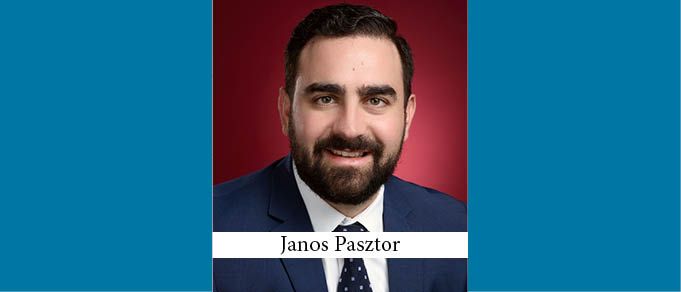The 2019 Hungarian tax law changes, among other measures, have introduced a new group taxation regime and reflect the implementation of the provisions set out in the European Union’s Anti-Tax Avoidance Directive (ATAD).
Group Taxation
According to the new rules, group taxation can be opted for by two or more entities subject to corporate income tax in Hungary provided that one of the entities directly or indirectly holds at least 75% of the voting rights in the other group company, or the same person directly or indirectly holds at least 75% of the voting rights in each group company.
The tax base of the group consists of the positive tax bases of its members. In contrast to current Hungarian tax legislation, which does not allow a taxpayer to utilize losses carried forward by another taxpayer, the negative tax bases of the group members may, subject to certain limitations, be utilized to decrease the tax base of the group in the tax year and the subsequent five years.
Group taxation may substantially reduce the administrative burden stemming from transfer pricing obligations (e.g., preparing transfer pricing documentation and adjusting the tax bases) since the group members do not need to comply with these obligations in respect of transactions effected between them.
In order to elect group taxation in 2019, a declaration thereon should be submitted to the Hungarian tax authority by January 15, 2019.
ATAD Implementation
Hungary has also complied with its obligation to implement the ATAD measures which seek to combat profit shifting and the erosion of the tax base by January 1, 2019. Accordingly, the GAAR provisions and the rules on controlled foreign companies have been amended, and the thin capitalization rules have undergone a major overhaul. Some of these modifications – the most important features of which we summarize below – may raise tax compliance issues, so taxpayers to whom they apply should carefully consider their effects.
First, the general anti-abuse rule has been extended to cover a series of arrangements made with a purpose contrary to the object or purpose of the applicable tax law which is not substantiated by a genuine business or commercial reason.
Second, the rules on controlled foreign companies have been amended significantly. Under the new regime, a foreign entity may avoid qualifying as a controlled foreign company if it draws income only from genuine arrangements (as defined in the legislation) in the tax year. CFC status can also be avoided if the foreign entity’s pre-tax profits do not exceed HUF 244 million and its passive income does not exceed HUF 24 million profit or its pre-tax profits do not exceed 10% of its operating costs, provided, in both cases, that additional conditions are met. In case of a Double Tax Convention between Hungary and a non-EEA country that exempts the income attributable to a permanent establishment located in this latter from taxation in Hungary, then such a permanent establishment will not qualify as a controlled foreign company.
The thin capitalization rules have also been set on a new footing. The bottom line of the thin capitalization provisions in force as of the date of this article is that the interest paid on debts in excess of the debt to equity ratio of 3:1 cannot be deducted for tax purposes, but this rule is not applicable to liabilities towards financial institutions, i.e., the amount of such liabilities should not be taken into consideration when calculating the amount of debt for thin capitalization purposes. However, the new rules follow a different logic when imposing the following limitation on the deductibility of interest expenses. The exceeding financing costs, i.e., the amount by which the taxpayer’s financing expenses incurred for business purposes – including payments on liabilities towards financial institutions – exceed its taxable interest income may be deducted from the tax base up to the higher of the following amounts: 30% of EBITDA or HUF 940 million (approximately EUR 3 million). The difference of 30% of the EBITDA and the exceeding financing costs which may not be deducted in the tax year can be carried forward, i.e., the amount can be used to decrease the taxable amount of the excess financing costs in subsequent tax years.
The Hungarian government expects that the above tax law changes will substantially boost the competitiveness of the taxpayers by rendering corporate income taxation more flexible (e.g., the utilization of losses) and reduce the tax compliance burden (e.g., the elimination of the transfer pricing compliance obligation) while restricting possibilities for tax avoidance.
By Janos Pasztor, Head of Tax, Wolf Theiss Budapest
This Article was originally published in Issue 5.12 of the CEE Legal Matters Magazine. If you would like to receive a hard copy of the magazine, you can subscribe here.



